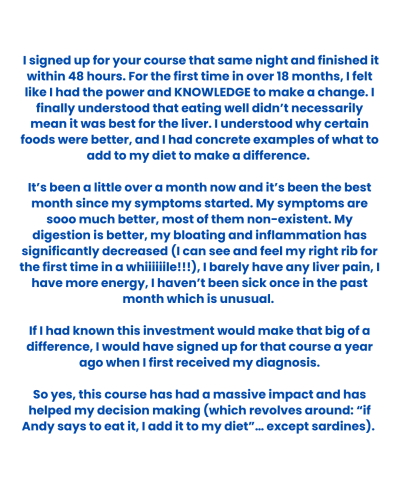Having just reviewed a fascinating report on the connection between fatty liver disease and cardiovascular disease presented by the American Heart Association, I wanted to offer forward some of the very important considerations that were outlined as it relates to fatty liver disease treatment.
There is little question of the fact that having a fatty liver, if you do nothing about it, will increase the likelihood you’ll encounter significant problems with heart health as you age.
Not to mention the fact that fatty liver disease is known to accelerate brain aging and is a big contributor to feeling chronically fatigued, which takes a massive toll on your quality of life.
The answer is clear – work with a professional to fight back.
Here are some of the reasons why this matters:
#1 Fatty Liver Disease Is EVERYWHERE
More than 1 in 4 adults globally have a fatty liver and the condition is growing rapidly as the average person’s metabolic health trends downwards.
Many people who have a fatty liver are undiagnosed but the higher your triglyceride levels and GGT (liver enzyme) are – the more likely you have it.
#2 The Liver Enzymes ALT/AST Aren’t That Useful
Many people I work with over rely on the liver enzymes ALT/AST as predictors of liver health – but the reality is you can have a fatty liver without these enzymes being high.
Equally, you can have the condition and completely reverse it and your liver enzymes might still remain high for a year or more because they don’t always respond rapidly to diet and lifestyle changes.
The most effective and broadly accessible way to measure liver fat content and scarring is via a device called a FibroScan – residents of Ontario who join my Fatty Liver Coaching Program have access to this imaging test at reduced cost via a clinic partnership that I have formed.
An ultrasound is the next best thing, but provides far less information.
#3 Specific Metabolic Factors Cause NAFLD
Insulin resistance is the most universal feature of fatty liver disease and is present in almost every case.
Whether or not someone is of a higher weight or dealing with other metabolic health challenges, the presence of insulin resistance is a massive risk factor.
Beyond insulin resistance the three big things to watch out for are:
- Low HDL
- High Triglycerides
- High ApoB
Read my post – “Fatty Liver Bloodwork – Beyond Liver Enzymes” to learn more about why these are so important.
For my clients who are not able to access a FibroScan, our primary goal is to improve these three metrics because they most strongly predict the direction your liver and metabolic health are going.
Nutrition science is powerful and can be applied to this task if we have an individual who is ready to make the necessary changes.
Other considerations like A1C and fasting blood sugar are also targets we can knock down should the individual have pre and/or type 2 diabetes alongside NAFLD.
#4 Changing Your Diet & Lifestyle Is The ONLY Solution
Let me start by saying that ample scientific evidence exists (including in my clients) that you can reverse fatty liver disease without significant weight loss.
Weight loss is not a sole marker of success to reverse fatty liver disease, all of the markers discussed above are.
This is why weight loss drugs or other pharmaceuticals are not likely to be enough to reverse your fatty liver diseae.
The reality is that fatty liver disease is also caused by gut microbiome imbalances, dysfunctional mitochondria, excessive inflammation and much more.
There will never be one pill that can address all of those factors.
That being said, many people with a fatty liver come to me with a secondary goal of losing weight and I’m fully capable of creating a nutrition strategy to accommodate that goal but equally I don’t want anyone to think that is the most important outcome on their path towards reversing fatty liver disease.
Here’s what counts the most:
- Dietary Modification*
- More Physical Activity
- Strategic Use Of Supplements
- Reduction In Alcohol
Exactly how each of the above come to life will vary from person to person, which is exactly why working with a professional who can curate a strategy specifically for you is so important.
#5 There Is No Single “Best” Diet For Fatty Liver Disease
There are, of course, specific families of foods and specific compounds within foods that science has demonstrated to be VERY good for liver health.
The fact is, however, everyone is simply so different in regards to the foods they enjoy and are willing to eat on a regular basis.
Which means the best diet and best supplements for fatty liver disease vary significantly from person to person depending on their individual characteristics.
My job as a dietitian is to find out what your characteristics are and to use my vast knowledge of nutrition science to help you understand what the best possible style of eating is for you and your liver.
If you are ready to start that journey with me, like one of my recent clients who provided a testimonial below, please reach out via my contact form expressing your interest and I’ll provide you more information about working with me and what you can expect.
My goal is to have you in a vastly better place within 4 months – which in terms of liver imaging, bloodwork and most importantly the vision and confidence in the style of eating you’ll need to pursue in order to reverse fatty liver disease for life.



